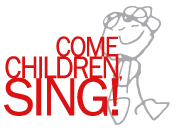Music is known to enhance learning in early childhood. It has always served the development of language skills, large and small motor skills, listening skills, and social skills. More recently, music has been touted to enhance math skills, to increase spatial awareness, and “to make your child smarter.”
Music may wire the brain for learning, but ironically, the dimension of learning most neglected in music activities for young children is music learning. Music for learning is not music learning.
Water, too, can be a delightful vehicle for learning, and children engage regularly with water. They bathe in it, wash their hands in it. They play in wading pools, sprinklers and water tables. They explore the properties of water with pitchers and sieves, developing foundations for math and science, the readiness for understanding measurement and volume. Yet these delightful experiences do not begin to teach a child to swim. It takes ongoing experience of immersion and thoughtful coaching over a long period of time to develop the young child’s natural capacity to sustain himself in water and propel himself by his own steam.
Similarly, it takes ongoing experience of immersion in music and thoughtful coaching over a long period of time to develop the young child’s natural capacity to sustain himself in the wonder of the art and propel himself musically by his own steam. The many delightful music activities that serve so many areas of learning do not begin to tap the musical genius of the young child. Many teachers use music to serve learning. It is imperative that music teachers serve music learning.

